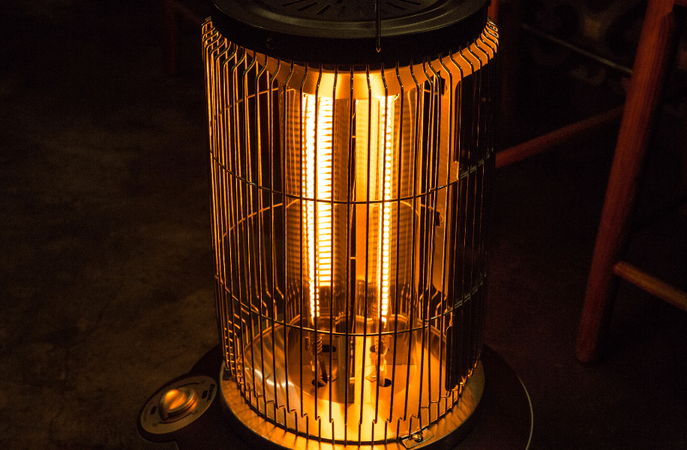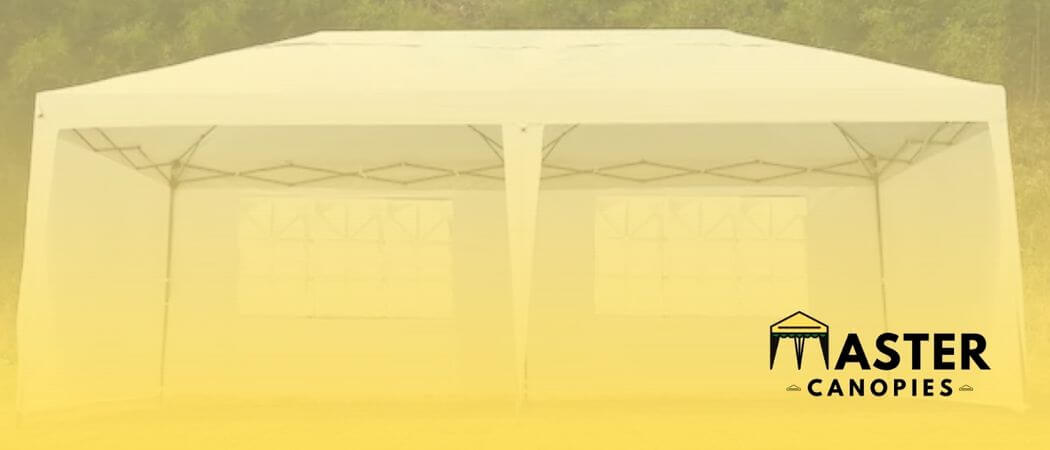
Wolfwise Beach Tent Review: Should You Buy It?
Wolfwise Beach Tent Review: Should You Buy It? Published January 23rd, 2023 by Allen Campbell Are you planning a beach vacation but don’t know exactly
Published February 3rd, 2023 by Allen Campbell

Is your tent the last frontier when it comes to cold-weather camping? Well, you’re not alone! If you thought that a tent was meant only for warm-weather camping, then think again. With some insulation and a few tweaks, you can turn your regular old tent into winter wonderland and be cozy even in the dead of night.
In this post I’ll go over how to insulate a tent for winter and provide tips on how to stay warm all season long. So grab yourself a cup of hot cocoa and read on – there’s no need to hibernate inside with these easy yet effective techniques!
The first step in how to insulate a tent for winter is to create a layer of insulation between you and the cold ground. A foam sleeping pad or two works great for this, as it will cushion your body against any bumps and keep heat from escaping.
If you don’t have any foam pads lying around, use an old blanket or rug instead – just make sure that whatever you choose isn’t too thick, as this could impact your tent’s ventilation levels. Additionally, if you’re expecting to sleep in snow, consider adding a tarp between your sleeping pad and the ground as an extra layer of insulation.
Your sleeping bag might be your best friend in the outdoors, but it’s not always enough during the colder months. To stay extra toasty, pack a few blankets and/or lightweight down comforters for added insulation. Not only will these help keep body heat in your tent, they can also provide some much-needed padding on cold ground surfaces.
This is especially important if you’re camping in an area with snow, as the additional blankets will help keep the cold off your skin. Not only will these keep you warm, but they can also make a cozy little cocoon if you need to hide from the elements.

Heat packs are a great way to keep your tent warm throughout the night. Simply place them around your feet, chest, and head for extra warmth. These are especially helpful in areas with heavy snowfall or on cold nights where it’s harder to stay warm without supplemental heat sources.
Not only will they provide some much needed warmth, but they can also be used as an additional layer of insulation if you’re using thin blankets or sleeping bags in colder climates. You don’t have to worry about running out of heat either, as many heat packs are reusable. All you need to do is give it a few shakes in the air and it will be restored back to its original temperature.
If you’re camping in cold climates, you may want to consider investing in a smaller tent. This is because smaller tents provide more insulation than larger ones since there’s less space for heat to escape. When shopping, look for four-season tents that are designed specifically for cold weather camping.
These will have thicker walls and floors, as well as features like adjustable ventilation systems that help keep the temperature regulated inside your tent. Keeping your tent snug and warm inside will make all the difference during those chilly nights. Since smaller tents are built to be more efficient, they’ll also save you the energy you’d have spent trying to warm up a larger space with blankets or sleeping bags.

If you have the budget and are looking for an extra bit of warmth, consider investing in a tent heater. These portable heaters come in either propane or electric versions, so be sure to choose one that’s best suited to your needs and environment. Propane heaters provide more intense heat but require ventilation as they produce carbon monoxide, while electric ones are also suitable for indoor use.
Many modern heaters comes with remote control, so you can easily adjust the temperature to your liking. Whichever type you go with, make sure to use it responsibly and follow all safety guidelines that come with it. With the right tent heater, you can stay toasty in your winter wonderland no matter what the weather outside throws your way!
Thermal clothes are a must-have if you’re camping in cold climates, as they help trap heat close to your body and keep the cold out. Think of them as an extra layer of insulation for your skin! Look for thermals made from wool or synthetic materials like polyester and spandex, as these will keep you warm even when wet.
You can also find winter-specific clothes that are designed specifically to keep you warm, like thermal jackets and pants. Not only will they help insulated you from the cold weather outside, but they’ll also make your camping experience more comfortable overall. Having warm clothes can also help you fall asleep faster and stay warm throughout the night.
Sometimes the simplest tips can make the biggest difference when it comes to staying warm. Make sure to cover your head while camping in cold weather, as this will help trap heat and protect you from harsh winds. Look for a beanie or knit cap made from wool or synthetic materials that’s designed to keep your head dry even in wet conditions.
If you’re feeling extra adventurous, consider investing in a balaclava that covers the face and neck as well! Just remember not to bundle up too much, as overheating can be just as dangerous during cold temperatures.
This is the main factor that determines how warm you’ll be during the night. Make sure to set up your tent in a sheltered location away from any winds, preferably near trees or other natural windbreakers.
You should also look for flat ground with good drainage so that water doesn’t accumulate around your tent and increase the chill factor. Additionally, try to find an area with some shade, as this will help keep temperatures inside the tent more moderate compared to those outside. With the right spot, you can ensure that your tent will stay warm and comfortable during the entire camping trip.
If there’s snow on the ground during your camping trip, you can use it to create an extra barrier between you and the cold air. Pile up the snow around your tent to form a windbreak that will help keep any gusts of air away from your space and preserve warmth inside.
Make sure to keep the enough space for ventilation as well, so that your tent doesn’t get too stuffy. This is a great way to ensure that your winter camping trip goes off without a hitch!
A hot water bottle is an old-fashioned but effective way to keep warm while camping in cold climates. Fill it up with boiling water and you’ll have a source of warmth ready whenever you need it! Place the bottle inside your sleeping bag before going to bed, or wrap it up in a blanket and take it along with you during the day if you’re out exploring.
It’s also a great way to relax after a long day of hiking, as its comforting heat can help soothe tired muscles and joints. Just make sure to be careful when handling the hot water bottle, as scalding water isn’t something you want on your camping trip!
Make sure to cover your tent with blankets or tarp to provide an extra layer of insulation against the cold. This will trap heat inside the tent, providing you with an even more comfortable sleeping experience.
If you have a large enough cover, you can even create a makeshift vestibule to keep out some of the elements when entering and exiting your tent. This is especially helpful if you’re expecting rain or snow during your trip. With all these tips in mind, camping in cold climates doesn’t have to be a shivering nightmare – just bundle up and enjoy!
When the sun goes down and temperatures start to drop, make sure to close all the doors and windows of your tent. This will ensure that any trapped heat stays inside and you don’t have to worry about cold drafts entering through any gaps. Additionally, avoid opening the tent for long periods of time to keep the chill at bay.
You can also use a blanket to block any gaps between the tent and the ground, which will help keep the cold out. With these simple steps, you should be able to enjoy a cozy night’s sleep in even the coldest temperatures.
Even if you don’t have a lot of money to spend on gear, there are ways to work with what you have to make sure you stay warm while camping in the winter. By following these tips on how to insulate a tent for winter, you can keep yourself comfortable and cozy all night long – even when the temperatures outside are below freezing.
So next time you’re planning a winter camping trip, make sure to keep these tricks in mind and you’re sure to have a pleasant and cozy experience.
Camping in the great outdoors is one of life’s greatest joys. Many people wonder if it’s even possible to sleep soundly while camping in below freezing temperature. The answer is a resounding yes, but it requires some planning and the proper equipment.
With enough layers of warm insulation, such as a sleeping bag and a foam pad to sleep on, you can brave temperatures well below freezing. Make sure your tent is waterproofed and has plenty of ventilation to avoid condensation on the inside walls. And don’t forget some extra blankets – or just snuggle up with your furry friends for an extra layer of warmth!
Have you been searching for the perfect tent to stay warm in on those cold nights out camping? Well, you may be surprised to hear that color choice could actually have a large impact on how much heat is retained in your tent. A dark colored tent will hold heat more effectively than a lighter one—so if you’re looking to stay warm without having to call up the nearest campfire, try going with something darker!
It just may be the difference between huddling under blankets at night and feeling comfortable enough in your own sleeping bag. So go start shopping for that new tent, and remember to keep your eye out for some darker shades!
If you ever find yourself on the road without access to a proper hotel or campsite, sleeping in a car may be the more cozy option than a tent. While it’s true that cars provide less space, they offer much better insulation from the cold outside – which can be quite the lifesaver during chilly nights.
On top of that, you don’t need to worry about rocky terrain throwing your sleep off balance – unless your car is parked atop an especially bumpy hill, perhaps? So if you’re confused between the two, consider opting for a car over a tent and you may just stay warm enough to get some zzz’s.
Sleeping outdoors in winter can definitely bring some unique experiences! But before you brave the cold, it’s important to make sure you have the right kind of tent for the season. Sure, a regular tent is great for 3-season camping, but if you’re planning to winter camp, you’ll need to look into an insulated four-season tent.
Trust me – chipping away at a frozen layer of ice inside your tent in the morning isn’t very fun…or warm! Investing in a quality four-season tent will help you stay toasty, warm, and cozy all through the winter. So don’t let the cold keep you from making outdoor memories – get the right kind of tent and you’ll be good to go!

Allen is a full time writer at Mastercanopies.com and enjoys traveling around the United States and exploring nature. He enjoys writing about canopies as he believes they are extremely crucial in having a successful camping trip whether it be a trip to the beach, mountains, or the open plains.

Wolfwise Beach Tent Review: Should You Buy It? Published January 23rd, 2023 by Allen Campbell Are you planning a beach vacation but don’t know exactly

Best 100×100 Tents for Large Gatherings and Parties Published January 12th, 2023 by Allen Campbell Finding the right tent for your next event can be

Glacier’s Edge Tent Review: Is It Good for Camping? Published December 19th, 2022 by Allen Campbell Are you looking for a tent to take your

Best 13×13 Canopy Sidewalls for Ultimate Protection Published December 19th, 2022 by Allen Campbell Camping season is here and so are all the amazing outdoor

Farmers Market Tent Ideas: Best Canopy Tents for Farmers Markets Published December 12th, 2022 by Allen Campbell If you’re like most farmers market vendors, you’re

Outsunny 10′ x 20′ Heavy Duty Pop-Up Canopy Review Published December 14th, 2022 by Allen Campbell Outsunny 10′ x 20′ Heavy Duty Pop-Up Canopy is

Gold Mountain Shelter Tent: Full Review Published December 7th, 2022 by Allen Campbell Are you in the market for a new tent? If so, you

Cool Cabana Review: Is This Beach Canopy Worth It? Published December 3rd, 2022 by Allen Campbell Summertime is the perfect time to hit the beach,

Best 20×20 Heavy Duty Canopy Tents Published October 17th, 2022 by Allen Campbell Want to find the best 20×20 heavy duty canopy tents for large

Master Canopies is here to bring you the best canopies for the outdoors so that you can enjoy the fresh air without the gleaming and burning light of the sun.

Master Canopies is here to bring you the best canopies for the outdoors so that you can enjoy the fresh air without the gleaming and burning light of the sun. As an Amazon Associate, we earn from qualifying purchases.